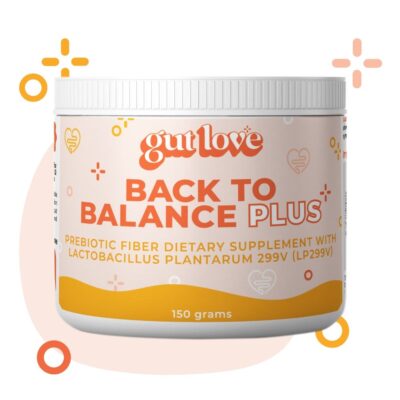Life with Crohn’s Disease brings its own set of unique considerations. Sometimes your mind can be thinking of a million different things when you have a chronic illness – from side effects of medications, bathroom trips and fatigue, to blood work, to family life, and what to make for supper. Which is why it’s important to prioritize YOU and not forget about self-care while managing Crohn’s Disease.
Crohn’s disease is one example of Inflammatory bowel disease (IBD), a chronic condition that affects millions of people worldwide. It is a group of disorders characterized by inflammation in the digestive tract, leading to symptoms such as abdominal pain, diarrhea, and weight loss. Having IBD increases your risk of other chronic diseases, which is why it is so important to prioritize yourself and make self-care part of your treatment plan.
For people with Crohn’s Disease, it’s not just about managing symptoms; it’s about finding a balance that allows for a fulfilling life by enjoying time with loved ones, and being able to participate in things you enjoy without worrying where the nearest bathroom is!
In this blog, we’ll explore the practical side of living with Crohn’s, with a special focus on self-care with recommended ways to include time for you in your week. It’s important to understand when to take a step back and listen to your body to be able to navigate this path with kindness and learning and we’re here to support you every step of the way!
Tips For Crohn’s Disease Self-Care
Enjoy a nutritious and balanced diet
Believe it or not, feeding yourself and fueling your body with the nutrition it needs is a form of self-care. Working with an IBD-focused dietitian can help you determine your individual needs, and how to follow an anti-inflammatory diet throughout the course of your disease.
Taking time to make and enjoy meals that align with your needs are a helpful way to prioritize your overall health and prevent flares from reoccurring.
Visit our blog here for ideas on foods to include more of to help manage Crohn’s.
Practice gratitude
Gratitude is the practice of being thankful and expressing thanks. Many people practice gratitude in the form of journaling what they are thankful for on a daily or weekly basis. Meditation, prayer, and writing a thank you note to yourself or a loved one are other ways to practice the art of gratitude.
Practicing gratitude can help boost dopamine in the brain (which is the happy chemical) and has the potential to decrease stress and anxiety (1).
Enjoy gentle movement
Making time for movement and staying physically active is beneficial for your brain, heart, and gut health. Movement helps:
- Increase the flow of endorphins (another happy chemical)
- Decrease bloating
- Promotes gut motility and
- Strengthens the heart muscle and increases blood flow throughout the body
Gentle movement may look different for everyone and can include walking, yoga, or swimming. All of these activities are a great way to incorporate stress management into your routine.
Don’t forget about your support system
We want you to know you are never alone in your IBD diagnosis. Leaning on your support system in times of need is beneficial to decrease stress, improve stress resilience, and provide support in times of need. As a first step you might consider taking a loved one to a medical center appointment – or having a conversation about how they can support you with your IBD>
Family, friends, and a trusted healthcare team are essential in working through the ups and downs of Crohn’s Disease. There are also support groups for people with IBD that can be found by visiting the website of your local chapter of the Crohn’s and Colitis Foundation.
If you are a support to someone with IBD or are wanting to learn more about ways your friends and family can support you, check out our blog here.
Don’t forget: if someone on your healthcare team does not align with you, it is okay to ask for a second opinion or be referred to someone else.
Keep appointments and stay up to date with lab work
Prioritizing self-care can also look like completing lab work, going for scheduled colonoscopies, and keeping appointments with your doctor, and the rest of your healthcare team.
Working with a dietitian can help determine your nutritional needs, decrease gastrointestinal symptoms, and help with nutrient deficiencies.
There are also gut specific psychologists available to add to your team. Talk to your doctor to see if you need a referral and visit our blog on IBD and mental health to learn more.
Find stress management techniques that work for YOU
Did you know that stress does not cause IBD but it does have the ability to make symptoms worse? Building stress resilience by finding ways to manage stress, and practicing self-care can be beneficial in preventing Crohn’s symptoms from occurring or lessening their effects.
Some examples to try out include:
- Meditation
- Box breathing
- Prioritize sleep
- Yoga
- Make time for your favorite hobbies
- Garden
- And all of the above ideas mentioned in this blog!
Most of these ideas and self care tips take less than 15 minutes to complete. Consider blocking off time in your calendar so that you can start spending time on you and incorporate the above tips into your routine.
Anxiety and depression are quite common with IBD (especially during flare ups). IBD can take a toll on you, so it’s so important to build in self care regimens to help with coping.
One of the biggest sources of anxiety for people with IBD is figuring out what to eat and how to navigate their nutrition. If you need further help managing your condition and figuring out what to eat with IBD- we are here for you. There is so much more we know now about what matters with IBD than is discussed online.
Online we often see guidance like – “just avoid spicy foods” or “go low residue” or “eat what you can tolerate… or my least favorite… “just track what you eat to pinpoint the common trigger foods bothering you”….
It truly doesn’t have to feel like throwing spaghetii at the wall when it comes to figuring out your nutrition. You don’t need another crazy diet. You need a sustainable plan, customized to you. Rooted in evidence with long term guidance on how to reduce your risk of flares too.
We help our patients identify trigger foods, help you tolerate many of them better and help provide strategies for symptom reduction! Less symptoms often means better quality of life and less anxiety with figuring it all out alone.
Please reach out to us here to schedule a free 30 minute inquiry call.
References:
- UCLA Health. (2023, March 22). Health benefits of Gratitude. UCLA Health System. https://www.uclahealth.org/news/health-benefits-gratitude







Can you recommend someone in Fairfield county Connecticut? Cannot afford your program
Thank you
Hi Paula, I don’t know of any specifically in that area. However we have low cost resources too… feel free to reach out and we can help you find something that’s a good fit!